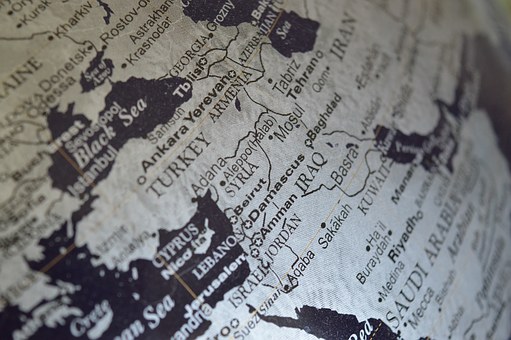
Despite last year’s historic signing of the Paris Climate Agreement, surprisingly little attention was paid to environmental issues on the international stage. There is a feeling amongst many environmentalists that the international community hasn’t just been slow to respond to the threat posed by climate change; it has been reluctant to do so. Scientists have been warning of anthropological climate change and the devastating impact it could have on life across much of the globe for some time, but it is only in the last few years that the effects have become undeniable to the leaders of the world’s worst polluters. Western nations continue to experience more frequent extreme weather events while many island nations throughout the Pacific have seen rising sea levels encroach upon what little space they have. Many are now facing the prospect of their home country becoming uninhabitable within their lifetimes.
Instability
Even relatively modest environmental changes can have dramatic effects on political stability, both locally and globally. The UN estimates that some 26 million people have been displaced every year since 2008 due to natural disasters. Even if the Paris Agreement is successfully implemented by all of its signatory states, most scientists believe that the Earth will still experience some dramatic localized climate change. It only takes a modest change in local environmental conditions to wreak havoc with agriculture and crop production. This, in turn, can lead to famine and instability, which creates refugees.
Refugees
Where natural disasters occur local people will be displaced. Where the number of displaced people is significant, refugee crises can emerge. These not only affect the country where the disaster occurred but can also put great strain on neighboring countries who suddenly find they have to cope with a massive population influx.
Even when people are initially displaced by non-natural disasters, for example, the civil war in Syria, environmental effects can exacerbate the crisis. In the years leading up to the outbreak of the civil war, Syria experienced its worst drought ever. The effects of this drought, combined with poor administrative decisions and unsustainable agricultural practices, caused massive internal displacement, which was a significant factor in the political unrest that followed.
Understanding the political consequences of destabilizing climate change falls under the purview of political science. Many leading universities now offer online political science masters. An online masters in political science will provide excellent preparation for anyone hoping to build a career in geopolitical analysis.
Agriculture
Across the globe, there are major powers that are dependent on other nations to assist them in producing enough food to feed their populations. This over-reliance on particular areas of the globe to maintain agricultural output means that even a localized drought or crop infestation could have far reaching consequences for a number of countries.
Environmental issues affect everyone, regardless of where they live or their social or economic status. It is more important than ever that global leaders do more to encourage the population to take the danger posed by climate change seriously.





Leave a Comment